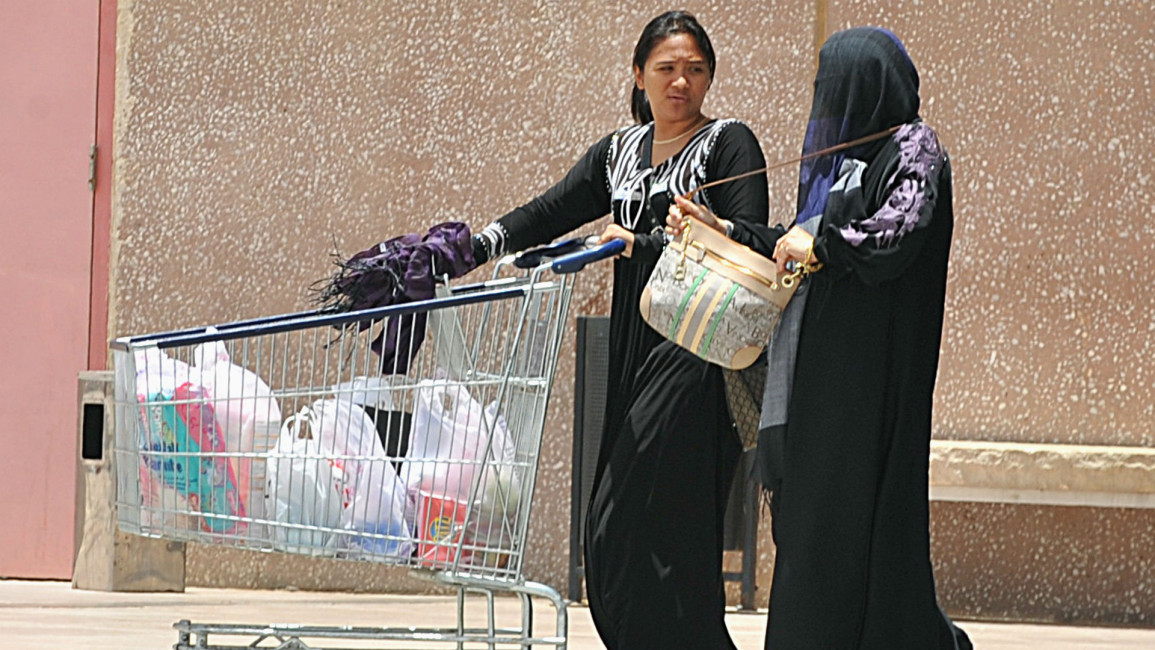Qatar issues new law protecting domestic workers
Once the Domestic Employment Law takes effect those who hire household workers will be required to have a written contract with their employees.
Previously contracts were not mandated, meaning domestic workers could not file complaints against their employers with the labour ministries, Doha News reported.
The new law also guarantees 10-hour workdays with meal, worship and rest breaks. It also mandates a day off a week for domestic help.
The new law is a sign of long-awaited labour reforms for Qatar, after coming under criticism from the International Labour Organisation and Human Rights Watch (HRW), as well as international scrutiny since winning the rights to the 2022 football World Cup.
HRW has cautiously welcomed the decree, saying it was "an undeniably positive and important step". However, the guarantees provided by the law "remain weaker than those provided by Qatar's labour code in many respects," a spokesman told The New Arab.
"This makes domestic workers second class workers, which is not acceptable. Qatar should address that gap, strengthen the guarantees, and set up strong enforcement mechanisms - otherwise the law, as imperfect as it is, will just not be implemented."
According to a copy of the law published in Al Sharq, house help is also now entitled to three weeks of paid vacation a year, as well as a paid roundtrip ticket home every two years.
Free healthcare and adequate accommodation and clothing; on-time salary payments at the end of each month; and fair treatment to maintain their dignity and protect them against physical and psychological harm, are also now mandated.
Additionally, the domestic worker, who must be aged between 18 and 60, should not be docked for any recruitment costs and cannot be taken out of the country for work without their permission.
Violating the law could result in fines of QR5,000 to QR10,000 ($1,370 to $2,750).
In return, domestic workers must respect "the laws, customs, social traditions and religious and moral values" of Qatar, as well as preserve the secrets of their employers and not harm their interests, the law states.
Campaigned
Hundreds of thousands of foreign workers have flocked to the gas-rich Gulf emirate in recent years, including almost 100,000 women working as house staff.
Critics have long campaigned for legal protection for them, with some claiming they are subjected to working in slave-like conditions.
These included physical and sexual abuse, no wages being paid and passports being confiscated.
In 2014 it was reported that hundreds of Filipino domestic workers had sought sanctuary at their Doha embassy complaining of harsh working conditions.
The issue of ill-treatment of domestic staff stretches across the region.
In 2015 Indonesia said it would stop sending domestic staff to 21 Middle Eastern countries in protests at the treatment of maids in those countries.


![President Pezeshkian has denounced Israel's attacks on Lebanon [Getty]](/sites/default/files/styles/image_684x385/public/2173482924.jpeg?h=a5f2f23a&itok=q3evVtko)



 Follow the Middle East's top stories in English at The New Arab on Google News
Follow the Middle East's top stories in English at The New Arab on Google News


